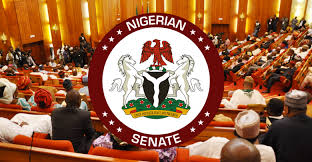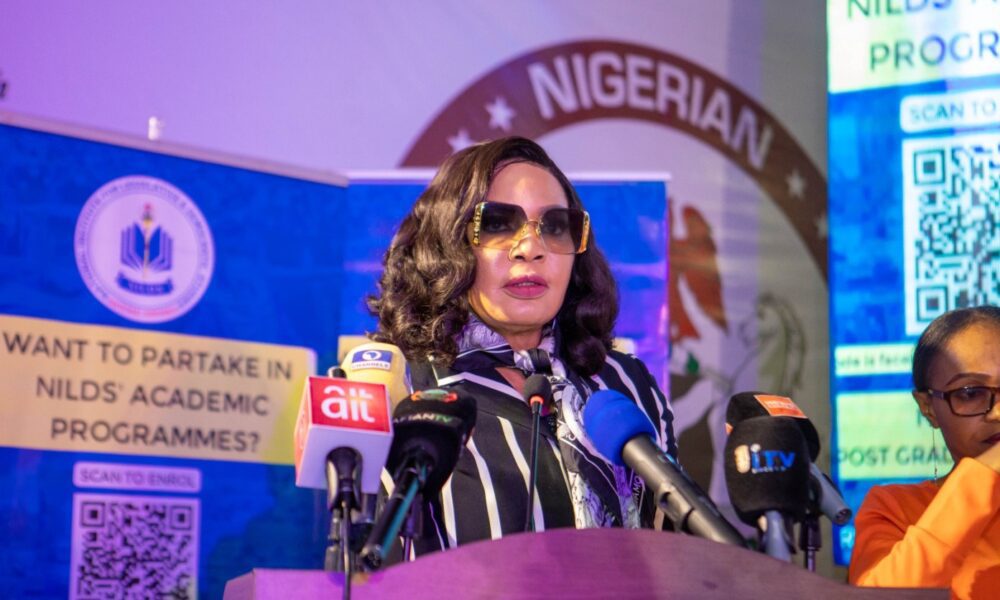**recommends regular executive, legislative parley for development agenda
The Leader of the Senate, Senator Michael Opeyemi Bamidele, has challenged his colleagues to come up with creative legislative frameworks that will provide robust oversight support to guarantee the appreciation and stability of Naira.
Bamidele, also, recommended regular parleys between federal lawmakers and all members of the Federal Executive Council as one of the measures that should be adopted to integrate the eight-point agenda of President Bola Ahmed Tinubu with the programmes of the 10th National Assembly.
He canvassed the positions at a two-day retreat for all senators of the Federal Republic of Nigeria at Ikot Ekpene, Akwa Ibom State under the theme, fiscal policy and tax reforms in Nigeria.
Organised by the National Institute of Legislative and Democratic Studies, the retreat was designed to build the capacity of the senators to enact pro-people legislations that could promote enduring peace; guarantee sustainable development and deepen peaceful co-existence, among Nigerians.
At the retreat were the President of the Senate, Senator Godswill Akpabio; Speaker, House of Representatives, Hon. Tajudeen Abbas; Deputy President of the Senate, Senator Barau Jibrin; Minister of Finance and Coordinating Minister of Economy, Mr. Wale Edun and other members of the Federal Executive Council.
Concerned about the weakening of Naira, the senate leader canvassed appropriate legislative frameworks and oversight support for the implementation of responsive fiscal and monetary policy with a view to rescuing the economy from regression.
He explained that both chambers of the National Assembly “are under obligations to stem the recurring decimal of Naira devaluation and promote economic stability. This entails appropriate legislative framework and oversight support for the implementation of responsive fiscal and monetary policy measures.
“Henceforth, developing appropriate legislative frameworks is central to ensuring macroeconomic stability with focus on managing inflation, addressing high interest rates as well as foreign exchange deficit,” the senate Leader observed in his paper presentation.
Bamidele equally highlighted diverse antidotes to socio-economic challenges currently confronting the federation, recommending first the urgent review of the Land Use Act, 1979 to redress the current land tenure system and give Nigerians more access to arable farmland nationwide.
He observed that ensuring more access to arable farmland would boost agricultural production exponentially and guarantee food security nationwide because most Nigerians, especially those in the rural communities, were predominantly farmers.
He emphasised the need to prioritise the Small Towns and Village Recovery and Development Bill in order to restore economic fairness to the rural communities in the scheme of national revenue allocations as well as the provision of rural infrastructure.
He added that the initiative would obviously stem the alarming rate of rural–urban drift and the attendant urban population explosion, urban criminality, environmental degradation and huge gap between available resources and demands in the cities.
He explained that effective implementation of the poverty alleviation programme “is fundamental to promoting peace, harmony and sustainable democracy in Nigeria where over 70 percent of the nation’s population is reportedly living below poverty line.
“To reduce the increasing inequality between the poor and rich, we urgently need to strengthen the National Directorate of Employment through the amendment of relevant legislations that will create limitless opportunities for our teeming jobless populations.
“We are also under obligations not just to overhaul our National Poverty Eradication Programme and National Economic Reform Plan, but also back them up with adequate funding to provide social safety nets for the poor and the vulnerable across the federation.”
Pointing out the alarming rate of corruption in the public space, Bamidele warned that the federation should prepare for mass action from the downtrodden, which might manifest in the form of protests.
As a matter of national security, the senate leader tasked the National Assembly to work out preventive measures to address corrupt practices rather than emphasising antidotes to cure them.
Bamidele also challenged the federal government to discourage selective treatment, executive lawlessness, high handedness, and political persecution of perceived enemies in the fight against corruption.
Also, at the retreat, Bamidele called for a joint retreat between the executive and legislature in order to work out modalities to integrate Tinubu’s eight-point agenda with the programmes of the National Assembly.
He explained that the proposed retreat would provide opportunity for all chairmen of standing committees in the Senate and House Committees to sit with ministers and their permanent secretaries to synergise on the approaches to implementing the eight-point agenda of the Tinubu administration.





I do consider all of the ideas you’ve offered on your post.
They are very convincing and will certainly work.
Nonetheless, the posts are too quick for newbies. May just you
please lengthen them a little from next
time? Thanks for the post.